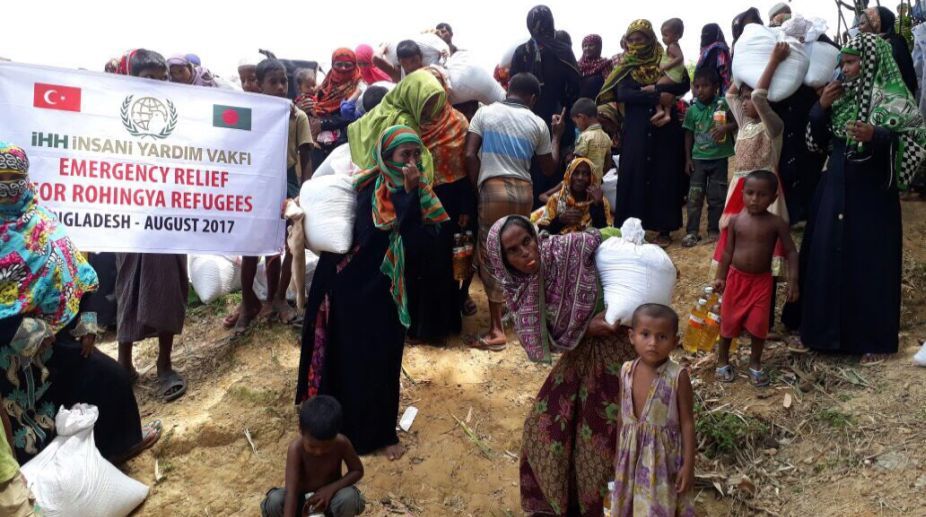‘We are thieves…’
On World Earth Day, the United Nations led the comity of nations by addressing a triple planetary crisis to foster climate stability, and asked that we live in harmony with nature and forge a pollution-free future.

(Photo: Twitter)
The UN said on Tuesday that it would appeal for $430 million in aid from the international community to respond to the Rohingya refugee crisis in Bangladesh, a figure which is more than double what was calculated weeks earlier when the number of refugees was lower.
Six weeks after the UN relief operations started, Mark Lowcock, the UN head for humanitarian affairs said that the conditions in Rohingya camps were terrible and that the UN would make an appeal on October 23 in Geneva.
“We are imminently going to be publishing an update to the UN response plan and will be looking, in order to support the government of Bangladesh and Bangladesh’s own institutions, to raise from international community something like &430 million to enable us to scale up the relief operation,” Lowcock said in a press conference in the Cox’s Bazar district, Efe reported.
Advertisement
“We have a fantastic set of proposals that come from all the response agencies and we are in a stage now where the main constrain we face is finance for those essential programs,” he added.
The executive director of UNICEF, Anthony Lake, said that the situation of refugees in Bangladesh was catastrophic for every refugee.
“I have never practically seen, around the world, people who are so traumatized by the experiences that they have suffered. And I mean not only the children but the women who have watched the male members of their family being slaughtered they themselves sometime being raped,” Lake said, referring to the crimes faced by the refugees before entering Bangladesh.
According to the UN, more than half a million Rohingyas have arrived in Bangladesh since August 25, fleeing a wave of violence in Myanmar.
UNICEF figures show that more than 60 percent of the refugees are children.
The exodus of Rohingyas began on Aug. 25, when a rebel group of the Muslim minority attacked government posts and the Myanmar army launched a military campaign in response, which has been called a “textbook example of ethnic cleansing,” by the UN High Commissioner for Human Rights.
Advertisement